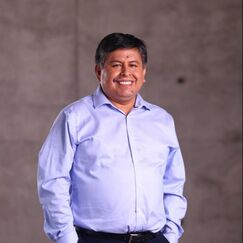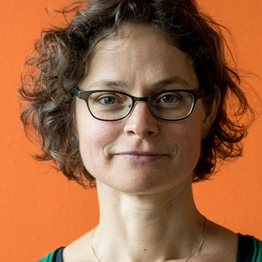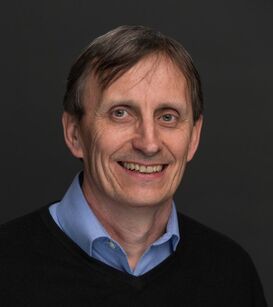River Flow 2022
This page copies from the official website of River Flow 2022 and might NOT be always up to date. You should always visit the official website (www.rf2022.com) if you don't have problems accessing the website. E-mail for contact: riverflow2022.org@queensu.ca
Only when you have difficulty accessing the official website should you read on.

**** IMPORTANT NOTICE: The deadline for submission of extended abstracts and papers has been extended to May 31st, 2022! ****
***** Final instructions for paper submission are now posted under the tab 'Paper Submission' *****
***** Instructions for Master Class applications are now posted under the tab 'Master Classes' *****
Welcome Message
Welcome to River Flow 2022, the 11th International Conference on Fluvial Hydraulics.
Organized since 2002 under the auspices of the Fluvial Hydraulics Committee of the International Association for Hydro-Environment Engineering and Research (IAHR), the River Flow Conference Series has become the main international event focusing on fluvial hydraulics and river engineering. River Flow 2022 will be a unique occasion to present and discuss the latest experimental, theoretical and computational findings on fundamental river flow and transport processes, river morphology and morphodynamics. The conference will as well cover issues related, but not limited to: the effects of hydraulic structures on flow regime, river morphology and ecology; sustainable river engineering practices (including stream restoration and re-naturalization); and effects of climate change including extreme flood events.
Given the present uncertainty related to COVID-19, the conference will be held virtually.
Following on the tradition and success of previous editions of River Flow conferences, River Flow 2022 will feature a day devoted to Master Classes for young researchers, daily keynote lectures, ample time for the presentation and discussion of accepted contributions (full papers and extended abstracts), and the presentation of the Stephen E. Coleman Award distinguishing the best paper first authored by a young researcher.
The LOC of River Flow 2022
➥ Follow us on Twitter: @riverflow2022
Important Dates
Abstract Submission: (original date: February 26, 2022) Extended to March 15, 2022
***** Abstract submission is now closed *****Notification of Abstract Acceptance: March 30, 2022
Extended Abstract or Paper Submission: May 18, 2022 May 31st, 2022
Notification of Reviews of Extended Abstract or Paper: June 22, 2022
Final Extended Abstract or Paper Submission: July 22, 2022
Notification of Paper Acceptance: August 7, 2022
Registration: opens on August 7, 2022
Master Classes: November 7, 2022 (Monday)
Conference: November 8-10, 2022 (Tuesday to Thursday)
Paper Preparation and Submission
The information below is only for individuals who have been notified that their abstract has been accepted. The deadline for extended abstract or full paper submission is May 18, 2022.
Paper Preparation
(1) Paper length:
Extended abstracts must be four pages long.
Full papers can be between 5 – 8 pages.
Submissions less than 4 pages long will not be accepted.
(2) Paper format:
The conference proceedings will be published by CRC Press/Balkema, Taylor &38; Francis Group. Extended abstracts and full papers use the same template and will not be distinguished in the proceedings.
Papers must be produced in Word.
It is of essence to carefully follow the paper template and instructions provided by CRC Press/Balkema. The electronic template, instructions and a sample are provided in the River Flow 2022 zip file provided by the publisher and downloadable at the bottom of this page.
Paper Submission
The River Flow 2022 papers or extended abstracts are to be uploaded into folders that have been created on the Cloud (one folder per submission in case of multiple submissions). The link to the folder for any given extended abstract or paper will be sent via e-mail before April 25, 2022. If you have not received such an e-mail latest by April 25, please contact us as soon as possible: riverflow2022.org@queensu.ca
To be considered a valid submission, authors must submit:
The paper as a Word file
The paper as a pdf file
License to Publish
Permission Verification Form
Paper and Author Information Form
The License to Publish and Permission Verification Forms are included in the downloadable River Flow 2022 Zip file provided below. The Paper and Author Information Form is provided separately also below.
Please label all files by including first author last name, document type and paper number, as indicated in the example below:
Example: Lacey_Paper_A025.docx
Lacey_Paper_A025.pdf
Lacey_License to Publish_A025.pdf
Lacey_Permission Form_A025.pdf
Lacey_Paper and Author Form_A025.pdf
Matters Related to Registration
One registration per submission is required. For multiple submissions, a maximum of two presentations per attendee is allowed.
To have the paper included in the Proceedings an author must register before September 10 and have paid the registration fee on time, and also present at the conference.
River Flow 2022 Zip File
Paper And Author Information Form
Organization
IAHR Fluvial Hydraulics Committee
S. Soares-Frazão, Chair
S. M. Hsu, Vice-Chair
A. Paquier, Past Chair
G. Constantinescu, Member
S. Dey, Member
M. Franca, Member
K. Koll, Member
A. Leopardi, Member
D. Termini, Member
R. Ferreira, Co-opted Member
C. Rennie, Co-opted Member
W.S.J. Uijttewaal, Co-opted Member
Local Organizing Committee
Chair: Ana Maria Ferreira da Silva, Queen’s University
Vice-Chair: Colin Rennie, University of Ottawa
Members:
Susan Gaskin, McGill University
Jay Lacey, Université de Sherbrooke
Bruce MacVicar, University of Waterloo
Student and Young Professional Members:
Jason Duguay, Post-Doctoral Fellow, Concordia University
Cristopher Gamboa-Monge, PhD candidate, Queen's University
Arman Haghighi, MASc candidate, University of Ottawa
Taylor Kenyon, PhD candidate, University of Waterloo
International Scientific Committee
Jorge Abad, RED YAKU, Peru
Jochen Aberle, Technical University of Braunschweig, Germany
Claudia Adduce, Università degli Studi Roma Tre, Italy
Peter Ashmore, University of Western Ontario, Canada
Ram Balachandar, University of Windsor, Canada
Ramon Batalla, University of Lleida, Spain
Sean Bennett, University of Buffalo, USA
Andrew Binns, University of Guelph, Canada
Koen Blanckaert, Vienna University of Technology, Austria
Tobias Bleninger, Federal University of Paraná, Brazil
Astrid Blom, Technical University of Delft, The Netherlands
Didier Bousmar, Public Service of Wallonie, Belgium
James Brasington, University of Canterbury, New Zealand
Sung-Uk Choi, Yonsei University, South Korea
George Constantinescu, University of Iowa, USA
Pierfranco Costabile, University of Calabria, Italy
Wenhong Dai, Hohai University, China
Giovanni De Cesare, École Polytechnique Fédérale de Lausanne (EPFL), Switzerland
Benjamin Dewals, University of Liège, Belgium
Subhasish Dey, Indian Institute of Technology Kharagpur, India
Kamal El Kadi Abderrezzak, EDF, France
Cristian Escauriaza, Pontificia Universidad Católica de Chile, Chile
Robert Ettema, Colorado State University, USA
Cristina Fael, Universidade da Beira Interior, Portugal
Rui Ferreira, Technical University of Lisbon, Portugal
Mário Franca, Karlsruhe Institute for Technology, Germany
Xudong Fu, Tsinghua University, China
Ichiro Fujita, Kobe University, Japan
Peng Gao, Syracuse University, USA
Massimo Greco, University of Naples Federico II, Italy
Massimo Guerrero, University of Bologna, Italy
Junke Guo, University of Nebraska-Lincoln, USA
Helmut Habersack, University of Natural Resources and Life Sciences, Austria
Marwan Hassan, The University of British Columbia, Canada
Valentin Heller, University of Nottingham, UK
S. Marko Hsu, Feng Chia University, Taiwan, China
Monika Kalinowska, Polish Academy of Sciences, Poland
Ali Khosronejad, Stony Brook University, USA
Katinka Koll, Technical University of Braunschweig, Germany
Julio Kuroiwa, National University of Engineering - UNI, Peru
Stuart Lane, Université de Lausanne, Switzerland
Stefano Lanzoni, University of Padova, Italy
João Leal, University of Agder, Norway
Jérôme Le Coz, INRAE Lyon-Grenoble, France
Angelo Leopardi, University of Cassino, Italy
Samuel Li, Concordia University, Canada
Anna Łoboda, Polish Academy of Sciences, Poland
Rodrigo Maia, University of Porto, Portugal
Kerry Mazurek, University of Saskatchewan, Canada
Koken Mete, Middle East Technical University, Turkey
Majid Mohammadian, University of Ottawa, Canada
Erik Mosselman, Deltares, The Netherlands
Pilar Garcia-Navarro, University of Zaragoza, Spain
Heidi Nepf, Massachusetts Institute of Technology, USA
Michael Nones, Polish Academy of Sciences, Poland
Elli Papangelakis, McMaster University, Canada
Ellis Penning, Deltares, The Netherlands
Alain Recking, INRAE, France
Bruce Rhoads, University of Illinois, USA
Ana Margarida Ricardo, Technical University of Lisbon, Portugal
Dieter Rickenmann, Swiss Federal Research Institute WSL, Switzerland
José Rodríguez, The University of Newcastle, Australia
Vesselina Roussinova, University of Windsor, Canada
Virginia Ruiz-Villanueva, University of Lausanne, Switzerland
Nils Ruther, Norwegian University of Science and Technology, Norway
Isabella Schalko, ETH Zurich, Switzerland
Sebastian Schwindt, University of Stuttgart, Germany
Laura Segura Serrano, Tecnológico de Costa Rica - Tec, Costa Rica
Graeme Smart, NIWA, New Zealand
Sandra Soares-Frazão, UC Louvain, Belgium
Kyle Strom, Virginia Tech, USA
Luca Solari, University of Florence, Italy
Jueyi Sui, University of Northern British Columbia, Canada
Hiroshi Takebayashi, Kyoto University, Japan
Pablo Tassi, EDF R&D and Saint-Venant Hydraulics Laboratory, France
Donatella Termini, University of Palermo, Italy
Ryota Tsubaki, Nagoya University, Japan
Daizo Tsutsumi, Mie University, Japan
Jon Tunnicliffe, University of Auckland, New Zealand
Wim S.J. Uijttewaal, Delft University of Technology, The Netherlands
Daniel Valero, IHE Delft Institute for Water Education, The Netherlands
Jeremy Venditti, Simon Fraser University, Canada
Damien Violeau, EDF R&D - LNHE / LHSV, France
Volker Weitbrecht, ETH, Switzerland
Silke Wieprecht, University of Stuttgart, Germany
Farhad Yazdandoost, K N Toosi University of Technology, Iran
David Zhu, University of Alberta, Canada
Topics
Theme A: Fundamental Flow Processes
Theme B: Sediment Processes and River Morphodynamics
Theme C: Hydraulic Structures and Their Effects on Bed and Flow Regime
Theme D: Eco-hydraulics, Vegetation, Wood and River Restoration
Theme E: Pollutant Dynamics and Mixing Processes
Theme F: Extreme Events and Effects of Climate Change
Master Classes
The Master Classes will be held the day preceding the opening of the Conference (7th November 2022). These classes are an excellent opportunity for young researchers to join two experts from their research field for a session of discussions and exchanges, and establish connections with individuals from other institutions working in the same or closely related fields. In these classes a group of selected Master and Doctoral students will have an opportunity to make an extended (30 to 40 min) presentation of their research, which will form the basis for the discussions.
Applications for the Master Classes will be open from June 15 to July 15, 2022.
In order to apply MSc or PhD students must send:
a 1 page CV;
a 1 page summary of the research to be presented
proof of enrolment in a MSc or PhD program
to the following e-mail address: masterclassriverflow2022@uwaterloo.ca
In the submission e-mail, clearly indicate the class you are applying for.
*** The proof of enrolment in a MSc or PhD program may consist of a letter from the supervisor or Department confirming the registration status as a graduate student, or alternatively a copy of the transcript showing satisfactory completion of the degree and date of completion (transcript must be in English or French) ***
*** Information on application procedure and deadline to apply will be announced later. ***
The planned Master Class topics are:
MC1: Fundamental Flow Processes Including Sediment Interactions
Masters: Claudia Adduce, Italy and Rui Ferreira, PortugalMC2: River Morphology and Morphodynamics
Masters: Koen Blanckaert, Austria and Cristian Escauriaza, ChileMC3: River Restoration and Vegetation
Masters: Heidi Nepf, USA and Virginia Ruiz-Villanueva, SwitzerlandMC4: Computational Modelling of River Processes
Masters: George Constantinescu, USA and Sandra Soares-Frazão, BelgiumMC5: Floods in a Changing Climate:
Masters: Pierfranco Costabile, Italy and Stuart Lane, SwitzerlandMC6: Mixing Processes in Rivers
Masters: Olivier Eiff, Germany and Wim Uijttewaal, The Netherlands
Keynote Lectures

Jorge D. Abad, Scientific Director, RED YAKU, Peru, https://redyaku.com/
Lecture title: Unveiling the diversity of river systems in Lowland Amazonia: from basic science to engineering projects to achieve sustainable river-based development
Dr. Abad received his PhD from the University of Illinois at Urbana-Champaign, USA. Dr. Abad received the 2012 Lorenz Straub Prize by St. Anthony Falls Laboratory (University of Minnesota), and the distinction of "Santiago Antúnez de Mayolo Gomero 2018" Award by the Peruvian National Council for Science, Technology and Innovation for his contributions to science, such as those in the Andean-Amazonian River system. Dr. Abad was the leading PI and scientist for several projects, especially n the Andean-Amazon connectivity where meandering and anabranching rivers are found, applying a range of methods from experiments, field measurements to mathematical computations. Just recently, Dr. Abad has been developing protocols for: 1) the assessment of the effectiveness of natural infrastructure in the Peruvian Andean environment, 2) monitoring water surface and water quality for the entire Amazon basin, a collaboration with the Amazon Cooperation Treaty Organization (ACTO).

Astrid Blom, Associate Professor and Head of the Rivers, Ports, Waterways and Dredging Engineering Section, Department of Hydraulic Engineering, TU Delft, The Netherlands
Lecture title: Channel bed incision in engineered rivers: characteristics and mitigation
Dr. Astrid Blom is an associate professor in the Department of Hydraulic Engineering of the Faculty of Civil Engineering and Geosciences of Delft University of Technology (TU Delft). In her research, she focuses on changes in engineered river systems. In particular, she asks how anthropogenic modification and natural change affect the river equilibrium state regarding channel slope and bed surface grain size, as well as how the river responds with time to such change. She loves to develop conceptual and analytical models as tools to increase insight into the physics governing modern and/or historic river problems. She combines these models with analyses of field and lab data, and numerical modeling to extend physical understanding to engineering applications. She is motivated to increase diversity in engineering and science, and loves to work with and educate young researchers.

Peter Ashmore, Professor, Department of Geography and Environment, University of Western Ontario, Canada
Lecture title: What braiding reveals about river morphology, bedload and channel change
Dr. Peter Ashmore is a distinguished professor in the Department of Geography and Environment at the University of Western Ontario, London, Canada. His career at Western Ontario was preceded by short appointments at Memorial University of Newfoundland, Environment Canada, and University of Saskatchewan, with sabbatical leaves at University of Canterbury (Aotearoa New Zealand) and University of Victoria (British Columbia). His research in fluvial geomorphology has included: dynamics of braided rivers; experimental geomorphology; bedload and morphological dynamics in gravel-bed rivers; response of rivers in Canada to climate change; river restoration; effects of urbanization on rivers; geomorphology of semi-alluvial rivers; and critical socio-geomorphology of rivers. He has conducted advisory work that includes contributing to the International Joint Commission project on Upper Great Lakes water levels and erosion of the bed of St Clair River, analyzing the potential effects of climate change on rivers in Canada (for Geological Survey of Canada), and supporting the Ontario Natural Channel Systems initiative.
Stephen E. Coleman Best Paper Award
The Stephen E. Coleman Best Paper Award is given biennially for the best paper submitted to the River Flow Conference Series first authored by a young researcher*. This award was established by the IAHR Fluvial Hydraulics Committee in September 2014, in memory of Prof. Stephen E. Coleman (1966–2012). Prof. Coleman is remembered for his outstanding and original contributions to fundamental and applied research in the fields of river mechanics and environmental fluid mechanics and his devotion and enthusiasm in the training of the new generations of hydraulic engineers and scientists.
The conditions for applying to the Stephen E. Coleman Best Paper Award are:
The first author of the paper is a young researcher* who will present it orally at River Flow conference
The author applied to the award when submitting the paper
The submitted paper should be a full paper or an extended abstract of at least four (4) pages
The selection of the best paper will be done by an Award Committee composed by members of the (Leadership Team of the) IAHR FHC. The award will be given during the closing ceremony of River Flow 2022.
* For the purpose of this award, a young researcher is defined as a M.Sc. or Ph.D. student or a researcher who has completed his/her Ph.D. no more than three years before the date of the conference in which the award will be given.
Program
To be announced.
Registration Fees
Early bird registration (August 7 - September 15, 2022):
IAHR Members: 180 CAD (Canadian Dollars)
Non IAHR Members: 200 CAD
Students and attendees from low-income countries: 150 CAD
After September 15, 2022:
IAHR Members: 205 CAD
Non IAHR Members: 225 CAD
Students and attendees from low-income countries: 175 CAD
*** Registration as attendant to the conference will include access to the three days, including all sessions and activities, and the conference proceedings (to be published by CRC Press/Balkema, Taylor and Francis Group). ***